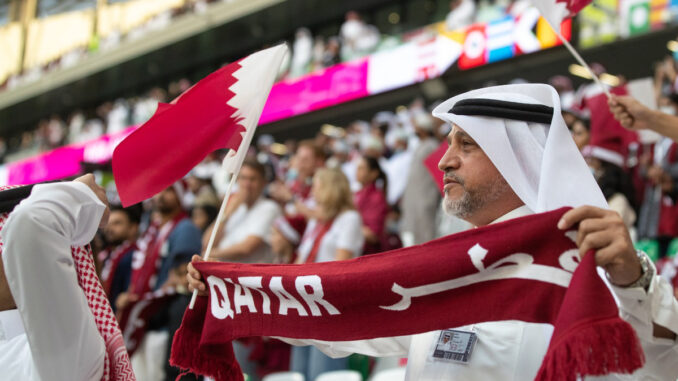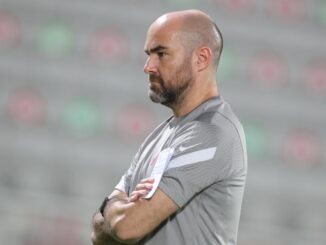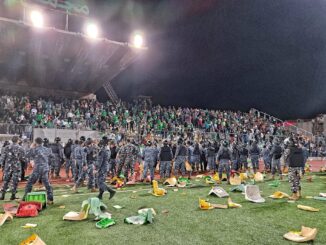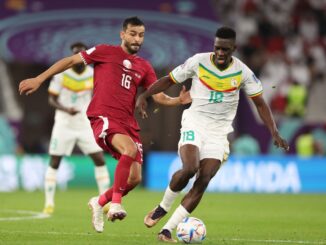
Five months on from the withdrawal of China’s as host of the 2023 AFC Asian Cup, the AFC announced today that the 18th AFC Asian Cup, previously due to take place in less than nine months, will now be staged in Qatar in early 2024.
It was just over a week ago that leaks started to emerge out of the AFC that a somewhat surprising, or utterly predicable about-turn, depending on how cynical you’ve become over the last decade of Asian football, was made following a whistle-stop bidding process to replace China as hosts of the impending Asian Cup.
The early reaction has reignited the divide between West and East in Asia. With a number of sparks anticipated ahead, could this well be the start to thoughts of a credible breakaway by both regions?
Three month circus
Back in May, China officially withdrew their hosting privileges, having failed to secure adequate assurances over logistics and spectator attendance as they, at the time, continued to grapple a seemingly endless COVID pandemic.
In early June, a year out from the proposed Asian Cup kick off, the AFC reignited a short, sharp bidding process to take on the baton.
While China continued to struggle against a lingering global pandemic, the rest of Asia, in particular in the East, were rejoicing at the new found freedoms of open borders and a return to normal in sporting terms.
After years of lockdowns and restricted attendances it felt like a promising time for fans to observe an optimistic and forward thinking bid process, as they fought it out for the chance to host in 2023.
Following initial clamour, South Korea, Australia, Indonesia and Qatar emerged as the four-nation shortlist for the upcoming event.
While the last two months saw Australia bow out early, the three other candidates remained in the race up until the day of the final vote.
With optimism in spades greeting Indonesia’s bid, the sense that this was possibly a cycle too early for the growing football nation was broadly understood.
With an upcoming FIFA U20 World Cup hosting to come next year, there was a sense that a senior continental event should follow rather than precede, or even overshadow, their current endeavours.
Following the stadium tragedy in Malang earlier this month, further restraint and internal consideration is going to be required before this prospect returns any time soon.
Qatar’s bid, in most circles, felt like a contingency. With sights set on hosting the following edition in 2027, let alone a small matter of a senior World Cup at the end of this year, the very fact that Qatar had the relevant infrastructure and operational capability at the drop of a hat seemed sensible; yet concerns over their summer climate, and the wider appetite for a little more variety in hosts for the Asian Cup was a case against the Gulf nation.
South Korea, therefore, became the immediate media darlings. It’s been over 60 years since the great continental powerhouse has hosted the Asian Cup; they sure have the stadiums available, reportedly had the cash, and crucially their government’s backing.
The fact they were widely seen as a safe pair of hands, and crucially hailing from the East, where most thought it was their rightful turn, support became strong behind their cause.
The strength in feeling, from government officials, the public and even celebrities, demonstrated by a star-studded endorsement from globally recognised boyband BTS only a week ago, the stars seemed to have aligned in Korea’s pursuit of the largest hosting of a senior footballing event since the World Cup in 2002.
The AFC, however, had other ideas.
The AFC turn to their Qatari comfort blanket
Once again we scan back to May, and to the bombshell announcement that China had withdrawn from hosting next year’s tournament.
The subsequent months have felt arduous in search of a much needed host, less than a year out from the tournament itself. Even in May it felt almost impossible to turn things around and announce a fit and proper host in time, one that could not just organise a continental tournament, but one that was due for a return appearance in its inflated state.
Beneath the leaks received from AFC insiders, the truth, which now seems all too obvious in hindsight, was staring straight back in our face.
Qatar were always muted as the Confederation’s preferred option to step into China’s shoes; they already had the infrastructure, they had the experience and crucially the financial backing to swoop in immediately.
In retrospect, given the speed with which matters played out, it beggars belief why Qatar weren’t offered it on the spot.
The stumbling block, or blocks as it emerged, firstly focused on the necessity to move the event to the winter; six months later than planned. This wasn’t seen as ideal, having readied yet another revision to the World Cup qualification format which was penned to start almost immediately after a summer 2023 AFC Asian Cup tournament.
Secondly, Qatar still had sights on 2027; a bid process that had already kickstarted. From a Qatari perspective, focus was firmly on preparations for this year’s World Cup, so 2027 seemed a more adequate gap in preparations for another grand hosting.
Even the 2024 U23 Asian Cup, only awarded to Qatar just recently, was set for an early 2024 start date – a direct clash with any senior plans.
Yet, the last few months have reaffirmed minds both in both the QFA and the Confederation.
Hardly known for their open minds, the AFC Executive Committee have long touted Qatar; they’d been won round politically long ago and the last few years have only cemented them as the ‘go-to’ bailout when things got hairy.
While Qatar has a dubious reputation in this regard, it mustn’t be forgot how adept Qatar were at stepping in to host back-to-back AFC Champions League campaigns while others remained firmly shut.
COVID has undoubtedly caused the AFC more headaches than the rest of the world’s football put together.
Hosting became a monthly struggle, especially World Cup qualifiers, which seemed to be given special dispensation by some governments, namely Japan and Korea, over a domestic game that was left to coast until the supporting cast stepped in to support.
Another deciding factor seems to have been the growing prominence of Saudi Arabia in their bid for 2027.
With diplomatic relations sitting quite favourably between themselves and the Qataris as we speak, many, even before China’s withdrawal of hosting, suggested there was a behind the scenes agreement that the 19th Asian Cup would head to the Kingdom of Saud.
To many, that’s another move towards a growingly apparent Western focused confederation. It’s regularly been commented that the AFC is the most divided confederation in world football, not just geographically and culturally, but politically, the West and East remain poles apart.
East vs. West
The AFC’s announcement earlier this year that the upcoming AFC Champions League campaign will move to an Autumn-Spring calendar from it’s current Spring-Autumn format is seen as another move to favour Western nations.
Aside from Australia and Thailand, all major nations in the East run calendar long campaigns, while the opposite is felt in the West who typically follow the European Autumn start.
A move to align the continental club championship with the West redresses the power balance if Asian football is ever going to be successful in presenting itself in the global window.
It’s the latest in a catalogue of concerns and angst between the two regions; clashes over conditions, logistical disagreements and confederation preference, the growing divide, most noticeable in the vast distance between the likes of Uzbekistan and Australia, makes it difficult to envisage a unified common ground.
The very prospect of the Russia question arriving on the horizon shortly, promises more division to come in the next couple of years.
While the selection of Qatar as host for the next Asian Cup wasn’t all too unsurprising, in it’s manner it feels quite significant.
To run what could be perceived, at least by their detractors, as a ‘staged’ bidding process, building up one of your most significant members as a key player, only to disregard them at the final furlong, will have feelings in East Asian football, far past those of merely Korea, hurting today.
With yet more difficult discussions on the horizon, and the AFC, ironically seen as sitting firmly in the West’s corner, despite still being situated in Kuala Lumpur, further pressure will start to mount, that may suggest a split in the confederation might be closer than many had thought.
Listen to the The Asian Game Podcast as we go In Conversation With… Panos Armenakas




